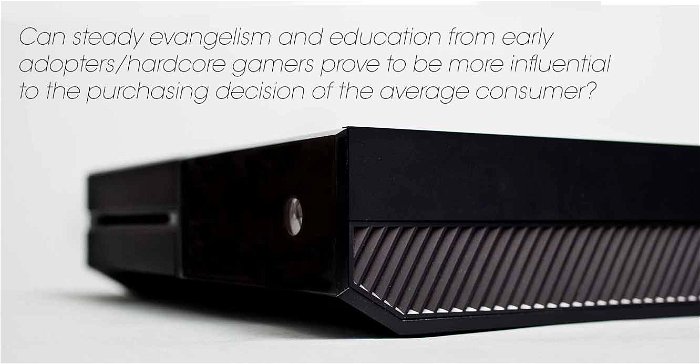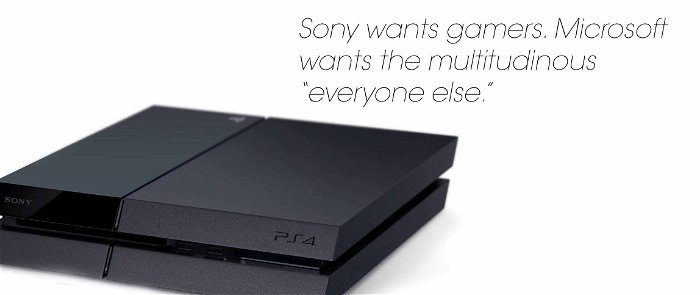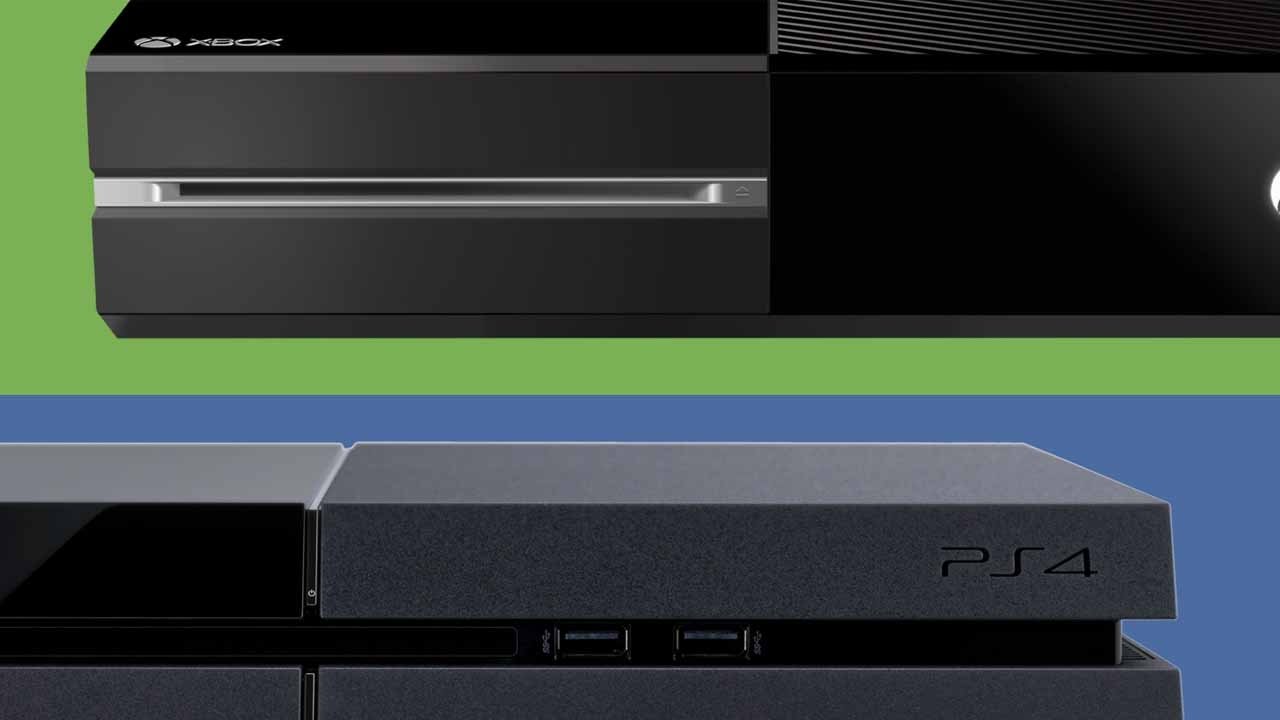As the dust settles from E3, it’s now clear that the landscape for the next generation (and its respective console warriors) is changing.
Both Sony and Microsoft have clearly laid out their cards and—at least in North America—it’s obvious that the battle for wallets is not going to be one of making hardcore gamers choose a side. Instead the hardcore gamer will go up against the mainstream or “average” consumer to determine a “console victor.”
Sony seems to be spearheading the charge into the next generation for the traditional hardcore gamer. It’s providing the most powerful console, the least intrusive system, and wants gamers to own their games with a traditional used game policy. Microsoft on the other hand is pushing the Xbox One as an “all-in-one” solution for the living room that not only plays games, but enhances TV viewing, keeps sports fans informed of their fantasy football standings, and provides a suite of additional TV services in addition to exclusive television content. It also plays games, but in a fairly restrictive manner that crushes past notions of game ownership. In other words, PS4 is an Old Fashioned Console in the sense that Sony is merely upgrading past practices going into the next generation. Xbox One is an attempt to break with tradition and find a new audience that doesn’t put as much emphasis on gaming and therefore won’t feel the DRM policies on the Xbox One adversely affect their ability to enjoy the hardware because of the broad range of additional functionality it offers.

Sony wants gamers. Microsoft wants the multitudinous “everyone else.” It was a strategy that rocketed the Wii to success this generation, and it worked well for Microsoft when they debuted the Kinect as an alternative interface that anyone could use. They are betting on two different horses to see which one is going to come in first.
Sony’s gamble is that the early adopters, the hardcore, will be the evangelists of their system. By creating goodwill amongst gamers and luring them with a more powerful machine and friendlier game ownership policies, they are hoping that the hardcore will be their educators and marketers. They want happy gamers to encourage the non-enthusiast market to follow their lead. Microsoft, on the other hand, is betting that because gaming is not a priority with their new targeted audience, DRM restrictions will have little to no impact; an opinion not that radical when it’s understood that Call of Duty—a primarily online experience—is one of the best sellers on any console. This average consumer demographic is also far, far more numerous than the specialist, hardcore gamer market by a wide margin. Nintendo is proof of this. The Wii, despite being unilaterally outclassed by PS3 and Xbox 360 in terms of power, is still the best selling console of the generation, and it got there by appealing to casual and mainstream audiences.

Both Microsoft and Sony saw this from the sidelines, realizing that all their effort to produce a high spec machine was side-lined because suddenly grandparents, non-gamer females and even very young children all reacted favorably to the Wii and wanted one. Nintendo had proven just how vast the market—and profits—for a console could be when a company was willing to go beyond the traditional hardcore gamer.
So now the market is faced with an interesting proposition, at least in the USA, which is the biggest battleground for console sales. Which audience is going to drive the sales of these machines? The PS4 is unlikely to tank in sales, but will it regain the dominant position the PS2 enjoyed once upon a time? Or is the combination of a machine that plays Call of Duty and Halo in addition to enhanced television and sports viewing going to work the same magic with vast American public that the Wii and Kinect did?
Put another way, can steady evangelism and education from early adopters/hardcore gamers prove to be more influential to the purchasing decision of the average consumer? Or will a deliberate, casual-centric focus with aggressive marketing be more effective?




